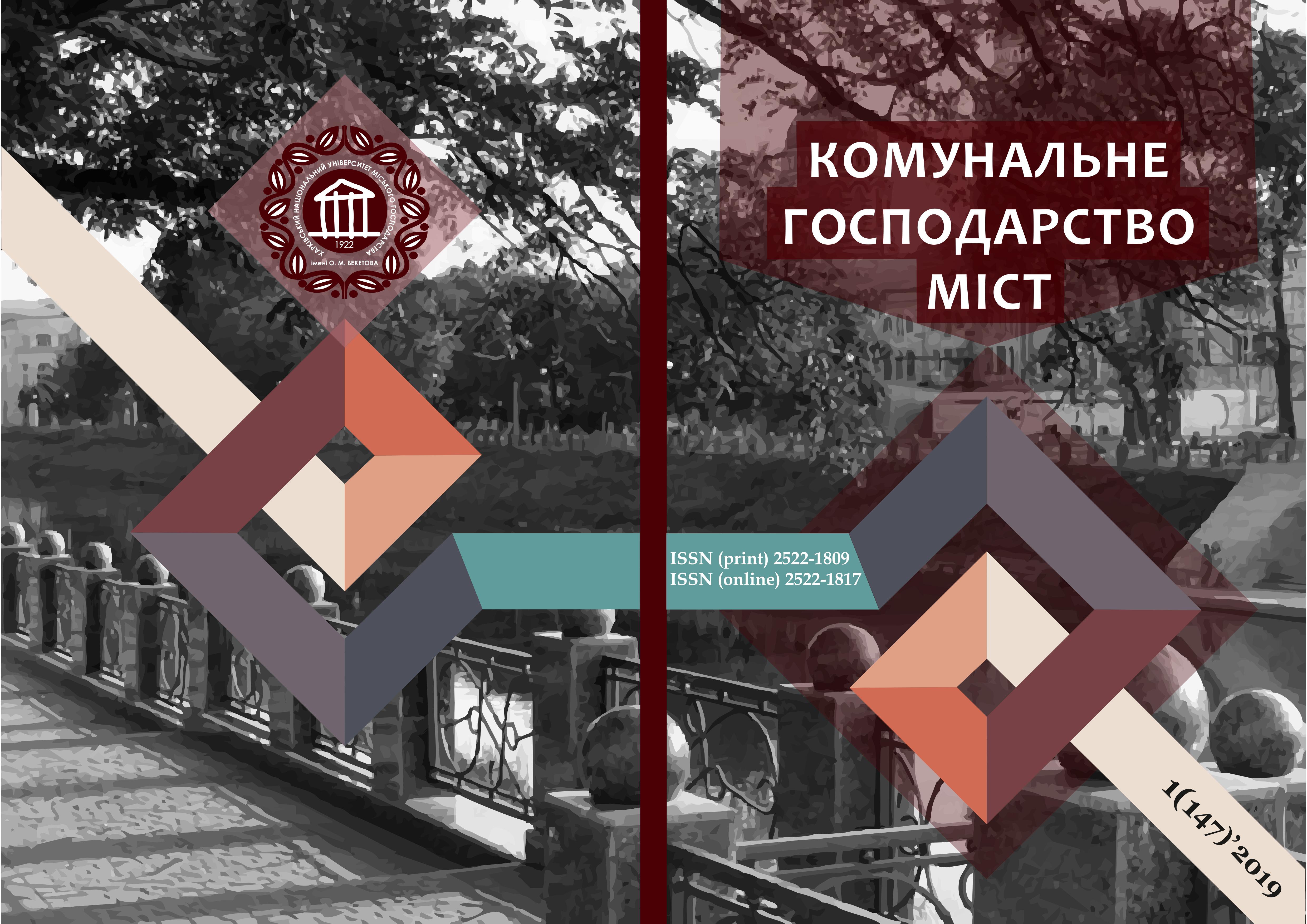THE STUDY OF THE ECOLOGICAL AND ECONOMIC EFFICIENCY OF SOLAR SYSTEMS IN THE IM-PLEMENTATION OF THE CONCEPT OF SUSTAINABLE DEVELOPMENT IN MUNICIPAL ENERGY
Array
Keywords:
sustainable development, heat supply, alternative sources, energy saving, natural object, solar system, energy efficiencyAbstract
The results of a comprehensive assessment of the energy, environmental and economic effects from the use of an alternative source of heat supply - a heliosystem, which consists of 180 solar collectors of the SKT 1.0 type, on a natural object - a communal institution "Kharkiv Palace of Children's and Youth Creativity of the Kharkiv City Council of the Kharkiv Region" (CI KPCYC) are presented. The strategy of development of energy sectors of the EU and Ukraine in the period of 2020-2030 was analyzed and significant growth of the relative share of renewable sources in the energy balance of primary sources of energy was noted. In the course of the research, a method of integrated assessment of the efficiency of energy-saving measures was created, which allows to determine the indicators of energy, environmental and economic effects, namely: the absolute and relative value of the amount of saved thermal energy, the value of reducing the amount of fuel, greenhouse gas emissions and pollutants, the magnitude of the reduction in fees for used fuel and the amount of consumed thermal energy. Based on the established methodology, it has been established that the use of the recommended solar system at the on-site facility allows for an additional annual effect to be obtained: energy - additional heat energy - 376.7 Gcal or 20.2%, from which it can be used: 212.3 Gcal or 11.4%, by other buildings (in the period from May to September) - 164.4 Gcal or 8.8%; at the same time, the requirement of the CI KPCYC for heat energy is provided: in the period from May to September - by 100%, during the heating period - by 2.8 ... 35.6%; environmental - reduction of natural gas consumption - 47.7 thousand m3, reduction of CO2 and NOx emissions into the atmosphere - 92.6 tons and 0.101 tons, respectively; economic: reduction of payment for thermal energy - 721.3 thousand UAH; The estimated payback period of the event is 5 years.
References
Shmandij, V., Klymenko, M., Golik, Y. (2013). Environmental safety: a textbook. – Kremenchug, 364.
Doroguntsov, S., Kotsenko, K., Ablov, O. (2005). Ecology: Educational methodical manual, 104.
Prutsky, O., Fedik, O. (2012). Current state and problems of alternative energy development in Ukraine. VNAU, 1 (56), 2, 158-164.
Sten, I. (2018). Analysis of constructions of hot water supply systems used in Ukraine, 1, 131-132.
Flat Solar Collectors Logasol SKT 1.0. Buderus Ukraine. Retrieved from https://www.buderus.ua/products/solar/skt10.html.
Vovchak, V., Teslenko, O., Samchenko, O., Sushkova, D. (2016). Best Available Technologies for Housing and Com-munal Services of Ukraine. Selection Technology Guide. Polygraph plus, 134.
Downloads
Published
How to Cite
Issue
Section
License
The authors who publish in this collection agree with the following terms:
• The authors reserve the right to authorship of their work and give the magazine the right to first publish this work under the terms of license CC BY-NC-ND 4.0 (with the Designation of Authorship - Non-Commercial - Without Derivatives 4.0 International), which allows others to freely distribute the published work with a mandatory reference to the authors of the original work and the first publication of the work in this magazine.
• Authors have the right to make independent extra-exclusive work agreements in the form in which they were published by this magazine (for example, posting work in an electronic repository of an institution or publishing as part of a monograph), provided that the link to the first publication of the work in this journal is maintained. .
• Journal policy allows and encourages the publication of manuscripts on the Internet (for example, in institutions' repositories or on personal websites), both before the publication of this manuscript and during its editorial work, as it contributes to the emergence of productive scientific discussion and positively affects the efficiency and dynamics of the citation of the published work (see The Effect of Open Access).

